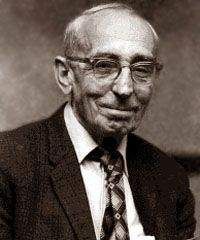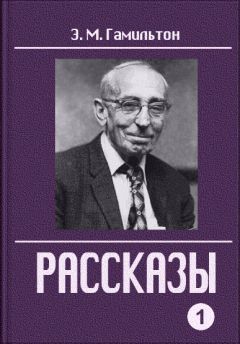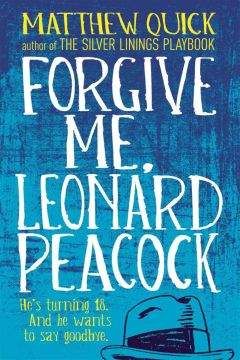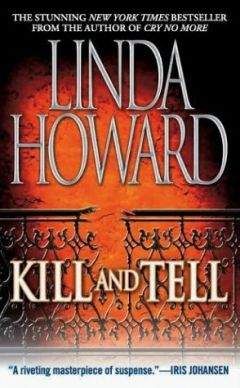Пользователь - o 3b3e7475144cf77c
the most completely self-possessed.
"He says it is no joke. Gall is something that is sold. A hundred and sixty-nine sacks of gall.
Also gum, many cases of gum. You were an agent." Tecumseh began to speak as if he were the
spirit, something which he did only when the communications came clearly. "You took my
goods and pledged them for yourself. Do you deny it?"
"Of course I do."
"You did not deny it in the London court. You pleaded guilty. You were in prison—what is it?—
the 'Old' something, Old Basin? It was more than fifty years ago, and I do not remember."
"Old Bailey?" ventured Lanny.
"That is it—Old Bailey. I was in Constantinople, and I trusted you. You said you did not know
it was wrong; but they were my goods and you got the money—"
The voice died away; it had become querulous, as of an old man complaining of something long
forgotten. If it wasn't real it was certainly well invented.
VI
Lanny stole a glance at the living old man, and it seemed to him there was a faint dew of
perspiration on his forehead. From what Robbie had told him he was prepared to believe that
the Knight Commander of the Bath and Grand Officer of the Legion of Honor had many
recollections which he would not wish to have dragged into the light of day.
Said Tecumseh, after a pause: "I keep hearing the name Mugla. What is Mugla?"
"It is the village where I was born."
"Is that in Greece?"
"It is in Turkey."
"But you are not a Turk."
"My parents were Greeks."
"Somebody keeps calling you Zack. Then I hear Ryas. Is your name Ryas?"
"Zacharias is one of my names."
"There is a man here who says he is your uncle. Anthony; no, not that. I don't know these
Greek names."
"I had an Uncle Antoniades."
"He says: 'Do you wish to talk to me?'"
"I do not especially wish it."
"He says: 'Ha, ha!' He does not like you either. You were in busi ness with him, too. It was not
so good. You made up wonderful stories about it. Do you write stories, or something like that?"
"I am not a writer."
"But you tell stories. All the spirits laugh when Uncle Antoniades says that. You have become
rich and important and you tell stories about the old days. They tell stories about you. Do you
wish to hear them?"
"That is not what I came for."
"There is a big strong man with a white beard; it looks like your own, only more of it. He
gives the name Max. He speaks good English—no, he says it is not good, it is Yankee. Do you
know the Yankee Max?"'
"I don't recognize him."
"He says he is Maxim. You were in business with him, too."
"I knew a Maxim."
"You bought him out. He made millions, but you made tens of millions. There was no stopping
you. Maxim says he did not believe in the future life, but he warns you, it is a mistake; you will
be happier if you change all that materialism. Do you know what he means?"
"It does not sound like him."
"I have put off the old man. I was a strapping fellow. I could lick anybody in the Maine
woods. I could lick anybody in Canada, and I did. I licked you once, you old snollygoster. Does
that sound more like me?"
"Yes, I recognize that."
"I once wrote the emperor's name with bullets on a target. You haven't forgotten that,
surely!"
"I remember it."
"All right, then, wake up, and figure out how you will behave in a better world. You cannot
solve your problems as you used to do, putting your fingers in your ears."
A moment's pause. "He went away laughing," said Tecumseh. "He is a wild fellow. When he
ate soup it ran down his beard; and it was the same with icecream. You do not like such
manners; you are a quiet person, Zacharias—and yet I hear loud noises going on all around you. It
is very strange! What are you?"
VII
The old Greek made no reply, and the voice of the control sank to a murmur, as if he was
asking the spirits about this mystery. For quite a while Lanny couldn't make out a word, and
he took the occasion to perfect his notes. Once or twice he glanced at the munitions king, who
did not return the glance, but sat staring before him as if he were an image of stone.
"What is this noise I keep hearing?" burst out the Indian, sud denly. "And why are these
spirits in such an uproar? A rattling and banging, and many people yelling, as if they were
frightened. What is it that you do, Zacharias?"
Sir Basil did not speak.
"Why don't you answer me?"
"Cannot the spirits tell you?"
"It is easier when you answer my questions. Don't you like what these people are saying? It is
not my fault if they hate you. Did you cheat them? Or did you hurt them?"
"Some thought that I did."
"What I keep hearing is guns. That is it! Were you a soldier? Did you fight in battles?"
"I made munitions."
"Ah, that is it; and so many people died. That is why they are screaming at you. I have never
seen so many; never in the days when I commanded a tribe of the Six Nations, and the palefaces
came against us. They had better guns and more of them, and my people died, they died
screaming and cursing the invaders of our land. So men died screaming and cursing Zacharias
the Greek. Do you run and hide from them? They come crowding after you, as if it was the first
time they ever could get at you. They stretch out their hands trying to reach you. Do you feel
them touching you?"
"No," said Zaharoff. For the first time Lanny thought there was a trace of quavering in his
voice. Another quick glance revealed distinct drops of sweat on his forehead.
"It is like a battle going on—it gives me a headache, with all the smoke and noise. I see shells
bursting away off, and men are falling out of the sky. No, no, keep back, he can't hear you, and
there is no use yelling at me. Let somebody speak for you all. Any one of you. Come forward,
you man, you with the ragged flag. What is it you want to say? No, not you! I don't want to
talk to a man with the top of his head blown off. What sense can come out of only half a head?
Keep your bloody hands off me—I don't care who you are. What's that? Oh, I see. All right, tell
him. . . . I am the Unknown Soldier. I am the man they have buried by the Arc de Triomphe.
They keep the undying flame burning for me, and they come and lay wreaths on my tomb. You
came once and laid a wreath, did you not? Answer me!"
"I did." The munitions king's voice was hardly audible.
"I saw you. I see all who come to the tomb. I want to tell them to go away and stop the next
war. I want to tell them something else that will not please them. Do you know my name?"
"Nobody knows your name."
"My name is Mordecai Izak. I am a Jew. Their Unknown Soldier is a Jew, and that would
worry them very much. Are you a Jew?"
"I have been called that, but it is not so."
"I understand, brother. Many of us have had to do it."
There was a pause, and then Tecumseh was speaking. "They are all laughing. They tell me not
to mind if you do not speak the truth. You are a very important man, they say. They push
forward a little old woman. I cannot make out her name; it sounds like Haje —is that a woman's
name? She says that she is the mother of your son. Is that possible?"
"It might be."
"She says that your name was Sahar. You changed it in Russia. It was a place called Vilkomir, a
long, long time ago. She says your son is living; he is a very poor fellow. She says you have
grandchildren, but you do not wish to know it. Does that mean anything to you?"
"Possibly."
"The wounded men crowd her away. They do not let her talk. They are shouting again: 'There
is blood on your money! You have a great deal of money, and there is a curse upon it. You
murdered a man when you were young, but that is nothing, you have murdered all of us. We
are waiting for you in the spirit world. We are the avengers—we, the men without faces,
without bowels! Some day you will come to us—' "
The voice of Tecumseh had become shrill; and suddenly the aged Greek started to his feet.
Two steps brought him to Lanny's side, and he said: "Give me the book." The younger man,
taken aback, handed over his notebook; Zaharoff grabbed it and hastened, almost running, to the
door, and went out, slamming it behind him.
VIII
That was the end of the seance. Not another word was spoken, but the medium began to
moan pitiably. Lanny was prepared for trouble, because any sort of abrupt action always had a
bad effect on her; it was something about which he had warned Zaharoff. Now she was seized by
a sort of light convulsion, and sputum began to drip from her lips. Lanny ran and got a towel
and wiped it away; he was frightened for a while, but gradually the moaning died, and after a
space the woman opened her eyes.
"Oh, what is the matter?" she asked; and then, seeing the empty chair: "Where is the old
gentleman?"
"He went away."
"He should not have done that. Something went wrong; I feel so bad."
"I am sorry, Madame. He was frightened."
"Did he hear something bad?"
"Very bad indeed."
"Somebody is dead?"
Lanny thought that was an easy way out. "Yes," he said. "He was not prepared for it and did
not want to show his feelings."
"It is terribly bad for me. Tecumseh will be angry."
"I think he will understand, Madame."
"It made me so weak; and my head aches."
"I am sorry. I will call for a little wine, if you like."
"Please do."
Lanny ordered some wine and biscuits. She would not eat, but she sipped the wine, and after
a while he helped her downstairs and into a taxi. He was interested to note that even under
these rather sensational circumstances the woman did not press him with questions. It was her
own feelings that she was concerned about. People should not treat her that way; they should
be more considerate.
He helped her on board the yacht, and Baby Johannes's nursemaid, who had become her
friend, helped her into bed. Beauty and the others were out seeing the sights of Dieppe, so
Lanny went to his own cabin to write up his notes a second time before his memories grew
cold.
A really striking experience! He couldn't judge about all the details—for example, the
hundred and sixty-nine sacks of gall—but Zaharoff's behavior was proof of the general accuracy
of the revelations. The young observer was clinging to his theory that these details had come out
of the subconscious mind of Zacharias Basileos ZaharofF, formerly Sahar, who had given several
names, several birthplaces and birthdates, according to his convenience at the moment. But
what a subconscious mind for a man to carry about with him! Were those the things he
thought about when he woke up in the small hours of the morning and couldn't get to sleep
again? How much money would it take to compensate a man for having such memories and
such feelings?
IX
Lanny could not forget that his own father was a manufacturer and salesman of munitions,
and that he had bribed and deceived and had documents stolen in order to promote various
deals. Did Robbie have a subconscious mind like that? Certainly he showed few signs of it. His
cheeks were rosy, he was sleeping well (so he reported), and he seemed to have his zest for life.
But was that all bluff? Was he holding himself up by his bootstraps? Lanny remembered how
quickly and how angrily Robbie would leap to the defense of the munitions industry
whenever he heard it attacked. That wasn't the sign of a mind perfectly at ease
Lanny had learned his father's formulas in earliest childhood. Budd Gunmakers Corporation
was one of the bulwarks of American national security, and what it did was a great patriotic
service. To say that it worked for profit was the vilest demagogy, because it put the profits back
into the business—that had been the family tradition for nearly a hundred years. To blame them
for selling munitions to other countries in times of peace was mere nonsense, for you couldn't
make munitions without skilled labor and you couldn't have such labor unless you gave it
work to do and paid it wages to live. The government wouldn't order any large supplies in
times of peace, but it expected to have a completely equipped plant running and ready to
serve it in case of need. What could you do but follow the example of all other merchants and
sell your goods whenever and wherever you could find customers?
There was a basic difference between Zacharias Basileos Zaharoff and Robbie Budd. Robbie
really considered himself a patriot, and no doubt that is an excellent thing for a subconscious
mind. On the other hand, Lanny had heard the old Greek say that he was a citizen of every
country where he owned property. Did he want to enable each of his countries to fight his other
countries? No, for Lanny had heard him, early in the year 1914, expressing his dread of war, in
language which had surprised and puzzled a very young idealist. Robbie had joked about his
attitude, saying that the old spider, the old wolf, the old devil wanted to sell munitions but
didn't want them used.
But they had been used, and Zaharoff had had to live and see them used—and evidently that
had been bad for his subconscious mind! Zaharoff had attended the Armistice Day
ceremonies and laid a wreath on the tomb of the Unknown Soldier. He had thought about that
soldier, and now Lanny knew what he had thought! Had he guessed that the national hero of
France might be a Jew? Or was it that the national hero really had been a Jew? Was Zaharoff
himself a Jew, or part Jew? Lanny didn't know, and wasn't especially interested. There were
few people in Europe who didn't have Jewish blood, even those who despised the outcast
race. For two thousand years the Jews had been scattered over the old Continent like
thistledown in the wind; and the most carefully tended family trees don't always show what
pollen has fallen upon them.
X
Lanny thought: What is the old man going to make of this? He can hardly believe that I
planted it on him; that I knew about his uncle Antoniades! No, he will know that the thing




